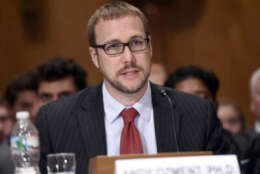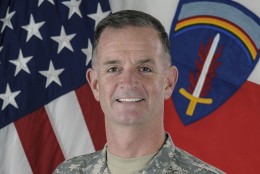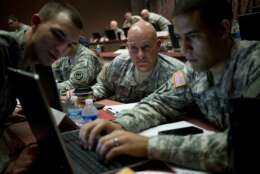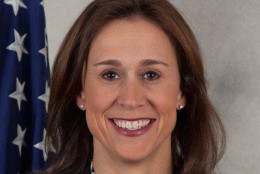Cybersecurity
Jason Opdycke, chief technology officer, U.S. Defense at Microsoft, gives his perspective on the Defense Department's plan to upgrade millions of computers to Windows 10. October 11, 2016
October 10, 2016-
The Department of Homeland Security is a diverse collection of agencies performing a variety of tasks, as evidenced by its three nominees for the Service to America Medals.
October 07, 2016 -
Phyllis Schneck, the deputy undersecretary for cybersecurity and communications in the National Protection and Programs Directorate, said the agency is pulling data from multiple sources to more quickly recognize potential and real cyber threats. Then DHS is rating those threats on a scale help agencies decide how quickly they need to take action.
October 06, 2016 -
President Barack Obama signed a memorandum promoting diversity and inclusion in the national security workforce. The memo calls for the collection, analysis and dissemination of demographic data, as well as develop practices for exit and stay interviews.
October 05, 2016 -
Department of Homeland Security Deputy Secretary Alejandro Mayorkas announced that he is stepping down effective Oct. 28.
October 05, 2016 -
The Army's Rapid Capabilities Office is barely a month old, but Army leaders already have a strong idea of what they want the new organization to pursue. Early priorities are electronic warfare, cyber, and position, navigation and timing. Maj. Gen. Walter Piatt, the office's deputy director for operations, joined Jared Serbu on Federal Drive with Tom Temin at this week's Association of the U.S. Army conference here in Washington with a preview of some of the work ahead.
October 04, 2016 -
The Cybersecurity Center of Excellence, part of the National Institute of Standards and Technology, has a heavy and critical agenda. Donna Dodson, NCCOE's director, outlined the scope of the work on Federal Drive with Tom Temin.
October 03, 2016 -
Lt. Gen. Gina Grosso says that the biggest challenge in the already complex problem of developing the Air Force's cyber workforce is the civilian portion. That's because the federal government isn't quite sure who is or isn't cyber personnel.
October 03, 2016 This week on Federal Tech Talk, Steve Bilbo, Army enterprise architect at Iron Bow Technologies joins host John Gilroy to discuss what federal agencies should consider when making the transition to Windows 10. October 4, 2016
October 02, 2016-
Charlie Phalen has spent four decades in the personnel security business, most recently at Northrop Grumman, and before that, in top security positions at the CIA and FBI.
September 29, 2016 -
Four new special item numbers for cybersecurity services sound like great opportunities. But, Alex Major, a partner at the law firm McCarter & English, tells Federal Drive with Tom Temin SINS could get some contractors in a lot of trouble.
September 29, 2016 -
Cybersecurity is a SIN, a special item number that is. The General Services Administration established several SINs under schedule 70 for cybersecurity services it believes are in high demand. For an update how these special item numbers are doing, Federal Drive with Tom Temin turns to Mary Davie, the GSA's assistant commissioner for Integrated Technology Services.
September 29, 2016 -
If things are working so well, what's the rush to transition when there's no real, hard deadline?
September 29, 2016 -
Welcome to the #FedFeed, a daily collection of federal ephemera gathered from social media and presented for your enjoyment.
September 28, 2016 -
Nearly one year after Congress passed the Cybersecurity Information Sharing Act, agencies say they're still looking for more buy-in from from more private sector companies to share and receive cyber threat indicator information with them. Meanwhile, the Justice Department, FBI and Homeland Security Department are trying to perfect their own information sharing practices as an incentive for companies to partner with them.
September 27, 2016














